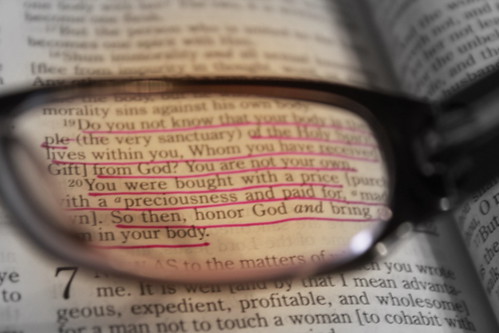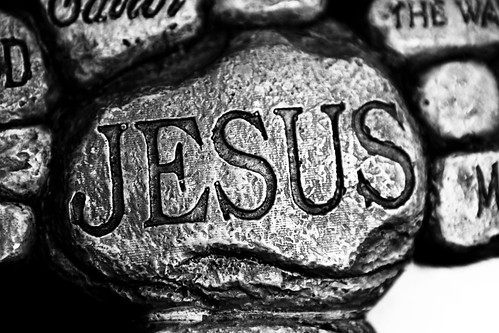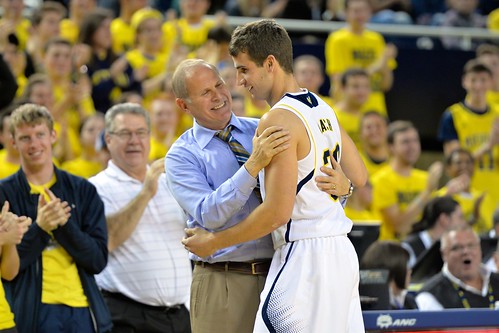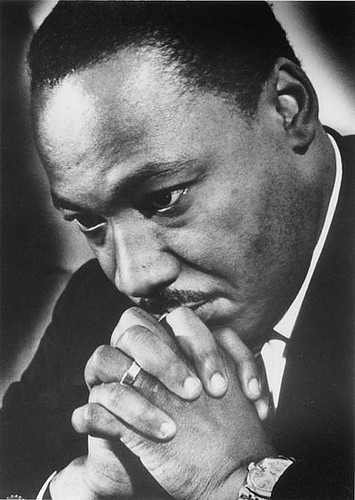 |
| Photo Credit: Chineka |
In his book The Blue Parakeet: Rethinking How You Read the Bible, Scot McKnight comments on the danger that can be found when instead of viewing the Bible in context as we relate to our place in God's grand story, we mainly pull verses out of context simply for our own benefit. McKnight says this:
"Dividing the Bible up into verses turns the Bible into morsels and leads us to read the Bible as a collection of divine morsels, sanctified morsels of truth. We pause for each one to see if we can get something from it. Now I want to meddle with a significant problem. For some morsel readers of the Bible, the Bible has become a collection of morsels of blessings, and we can write one out for each day of the week. Random verses, with generosity poured on top of generosity. On other calendars we get, instead of a blessing, a promise each day. Random verses, with blessing on top of blessing or promise on top of promise. (No one has yet composed a Wrath of God Calendar of Warning, though some seem poised to begin making such a calendar.)
What happens to the Christian who reads the Bible, day after day and week after week, as little more than a collection of morsels of blessings and promises? For one, everything is good and wonderful and light and airy. These people become optimistic and upbeat and wear big smiles...until something bad happens, until they enter into a period of suffering and feel distant from God, or until they hit a wall. For every hill, there is a valley.
One of the most important things about the Bible is that it tells realistic truth. Sure, there are kinds of wonderful blessings surrounding Abraham, Moses, David, and Paul...and there are also days of doubt, defeat, disobedience, and darkness. David was on top of the world at times, but he also asked God this question: "My God, my God, why have you forsaken me?" (Psalm 22:1). Edith Humphrey, a New Testament scholar, made this important observation of what happens when we focus solely on blessings and promises: "It is unfortunately the case that some contemporary expressions of Christianity have forgotten, or are embarrassed by, this moment of dark reflection, and instead espouse an unrealistic and warped view of spiritual victory." She also speaks of the "relentlessly upbeat" moods that lead to "false security and canned joy."
It is important to know the blessings and to rely on God's promises. Please don't misunderstand my point. But the blessings and promises of God in the Bible emerge from a real life's story that also knows that we live in a broken world and some days are tough. The stories of real lives in the Bible know that we are surrounded by hurting people for whom Psalm 22:1 echoes their normal day.
Those who read the Bible as story refuse to cut up the Bible into morsels of blessings and promises because they know the Story. They know that the David who found God's blessing and trusted in God's promises knew the dark side of life. Imagine how the God of the universe, who chose for some reason to communicate with us in the very thing that makes humans so distinct - sophisticated language in the form of story covering spans of time - must respond as he observes his people seeking random sayings! It's a wonder that God at some point hasn't made the words disappear from the page, so that we open our Bibles up and nothing but blank paper stares us in the face. We deserve it."Yes, the Bible does contain blessings and promises that can bring encouragement to our days. But it is so much more that. When we "cherry pick" verses to fit our agenda, we do a disservice to the great story that God has given to us through His Word.











